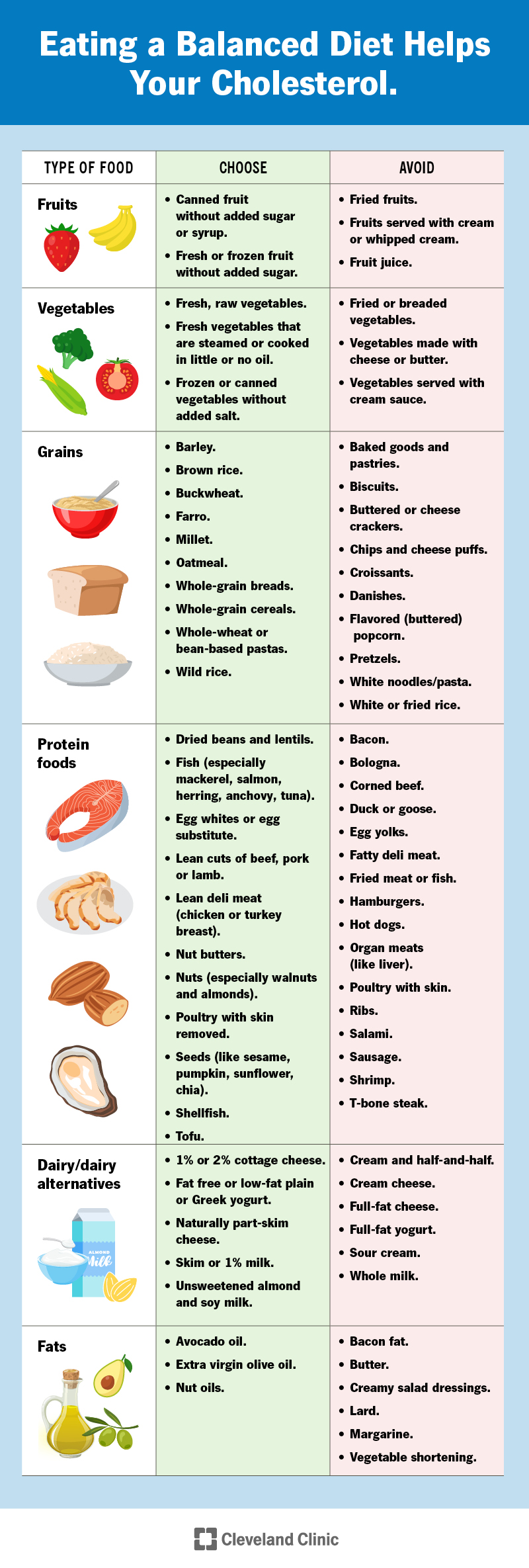
National Cholesterol Education Month is every September. In last year’s Cholesterol blog, we discussed what cholesterol is, the rising statistics of high cholesterol in young adults, and steps to lower cholesterol. One of the steps to lower your cholesterol is to eat a healthy diet. Avoiding trans and saturated fats in processed and fried foods is a good starting place to lower your cholesterol, but what should we eat to maintain a healthy lifestyle?
The Invisible Condition
Unlike most health-related issues today, high cholesterol has no symptoms. You can only find out you have high cholesterol by taking a blood test and seeing the results. There are a few causes for high cholesterol, like medical problems, genetics, and lifestyle choices. If you have a family history of diabetes, heart attack, stroke, or high cholesterol, the American Heart Association recommends that children get checked between the ages of 9 and 11. The next time people should get screened is between the ages of 17 and 21.
A Balanced Diet
Most recommendations for lowering cholesterol are to cut out fried and processed foods, consume less sodium, and consume fewer trans and saturated fats. However, cutting fried and processed foods from your diet can be hard, especially in today’s fast-paced society.
Cleveland Clinic suggests adding soluble fiber to your diet. Soluble fiber is water-soluble and binds to bile, removing bad cholesterol with your body’s waste. You can add soluble fiber to your diet by eating brown rice, oats, apples, blackberries, and citrus fruits.

Saturated fat is a type of fat that is most often solid at room temperature. It can be found in processed meats like hot dogs, bacon, pepperoni, and sausage. Fatty meats like ribs or highly marbled meat have saturated fats. Full-fat dairy products like sour cream, cream cheese, butter, and heavy cream are a source too. It is recommended that about 5% to 6% of your calorie intake should be from saturated fat.
Check out the graphic above from the Cleveland Clinic to know what your saturated fat limit is.
You should limit your intake of trans fat next. Trans fat is a combination of liquid vegetable oil and hydrogen. Unlike saturated fat, trans fat is not needed in your diet and should be avoided if possible. Try to limit your intake of fried and processed foods and commercially baked goods.
If you’re wondering what foods are best for lowering your cholesterol, the Cleveland Clinic has put together an easy guide to what to eat and avoid.
How AFSPA Can Help
If changing your diet isn’t enough to lower your cholesterol, there are other ways to do so through the Foreign Service Benefit Plan.
FSBP members have access to a variety of wellness programs to help control their cholesterol and live a heart-healthy lifestyle – from preventive care activities that help you earn rewards, to programs that help manage specific health conditions.
We also offer Digital Coach Programs to FSBP members. The cholesterol management program is a personalized plan to help achieve successful behavioral change. You can sign up on Aetna’s Secure Member Website. Look for the “Health and Wellness” icon, then select “Discover a Healthier You.” You can receive up to $150 just by completing this program!
Our Lifestyle and Condition Coaching (LCC) Program uses a holistic approach to help you and your covered dependents achieve your best health. You can receive up to $150 by completing the Condition Coaching vascular program specifically for high cholesterol.
To enroll in a program, contact a LCC Health Coach at 866-533-1410. LCC Coaches are available Monday through Friday from 8:00 a.m. – 8:00 p.m. ET. You may also enroll online at www.myactivehealth.com/ FSBP. Participation in this program is voluntary and is available at no cost to members.
Sources